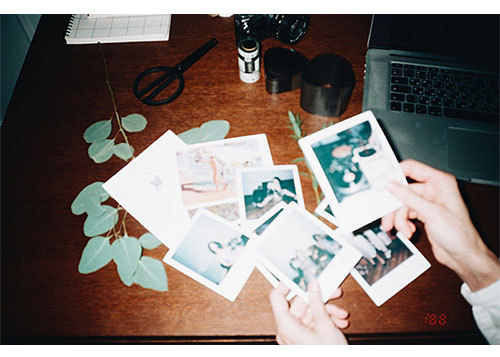An unsettling thing happened when I went home to Colorado for the holidays last year. While my family sat around a fire in Summit County, trading stories and recent news, my sister asked me about a time she and I had shared that she remembered vividly.
“You don’t remember that?” She stared at me emphatically, as if asking the question would light the match to the memory that had clearly grown cold and damp in my mind. No such luck. In fact, I couldn’t recall even a portion of the memory she described to me—a memory that wasn’t from too long ago, but distant enough that it’s not tangible anymore, something vaguely familiar.
I don’t know when I started noticing gaps in my memories of things, but it became more pervasive and embarrassing in my early 20s. Large swaths of time suddenly go dark, dissolve from within me. It starts small, with a drive home from a late shift that I couldn’t really describe, to a song that sounded like something I knew but couldn’t pinpoint who it was. People waving and saying, “How are you?” who I didn’t recognize or couldn’t name. Then more of those questions:
“Remember that time?” “What year was that?” “When did you get that tattoo?” Significant portions of my own timeline were missing. I became skilled in leading conversations away from my frustration and increasing anxiety over these lost portions of time. I started leaving myself notes around the apartment.
“Don’t dry the tan, wool shirt!” “Remember your sister’s birthday is on the 13th, CALL HER.” “There is spinach in the fridge, if you don’t eat it, it will go bad and you will feel like a failure again.” While some of these were reminders about small tasks, I started to wonder if this was how my life was just going to be now. The problem for me wasn’t just why I couldn’t remember, but how I could get these memories back.
My partner and I were talking about books we had read in 2019; books that blew us away and books that we wished we had put down sooner. I knew I had read stellar books last year, but I couldn’t pinpoint those titles. I reached for my phone, as many of us who need to remember something right away do, and opened my Goodreads app. My “2019” shelf sat, neatly and chronologically ordered for me to peruse. Month by month, the books I had slogged through and the books that shone brilliantly awakened in my memory, but something else happened too. I began to remember other parts of my life in those months, what I was doing while reading The Song of Achilles, or where I had been sipping a particularly delicious sticky rice tea in Sellwood while devouring La Fronterra in June. One by one, my memories filtered back in, and as I looked further and further through my Goodreads archive, pieces of 2017 and 2016 came together before me.
It turns out, it’s not just me; our memories are getting worse and that’s largely due to the
Google effect, in which the ability to look up or search is so readily available to us that our minds have “decreased dependency on internal memory storage.” I can’t recall the amount of times I’ve been thinking of a word for something or a fact about so-and-so and just Googled it. While I was briefly euphoric at the discovery that Goodreads had carefully catalogued the past three years of my life for me with dates and metadata to support the timeline, I wonder about the accuracy of archival memory. It’s unsettling to consider that memory may become something that lives on a server farm somewhere, susceptible to be infiltrated, altered, or vanished. But there is a rather simple solution: write more. Research has shown that writing things down is essential to memory retention. Perhaps the digital cataloguing of the books I’ve read in some way has captured those memories within the pages of those books. In rereading the titles, I am able to relive those parts of my life with more clarity, and to engage again with my life through the “written” lists of how my past was spent.

